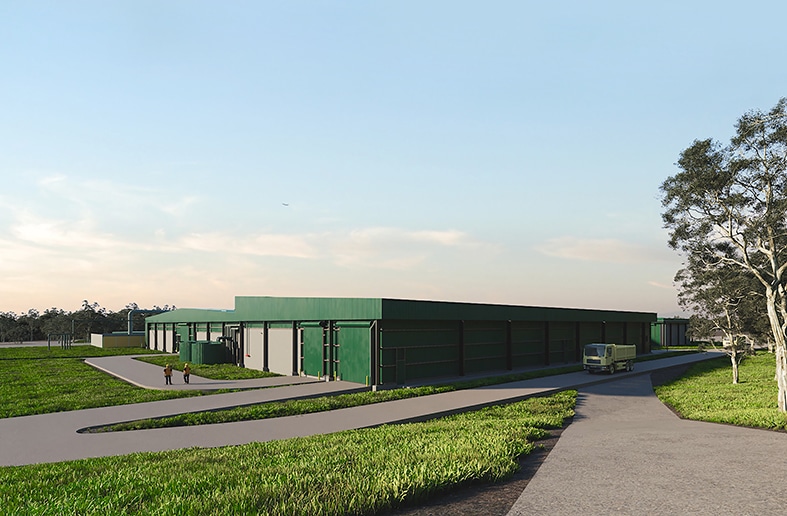A plan to increase the capacity of City of Newcastle’s new Organics Processing Facility (OPF) will fast track its ability to accept food scraps by four years, diverting an additional 24,000 tonnes of waste from landfill.
The City plans to expand the facility’s capacity to 50,000 tonnes per annum at the initial construction stage, which would allow it to process both garden and food organics from its first year of operation. To be constructed at the Summerhill Waste Management Centre, the fully enclosed facility will use new technology to process the waste into compost for reuse.
A City of Newcastle spokesperson said the proposed facility, together with the Material Recovery Facility (MRF), will form the cornerstone of creating a resource recovery hub not only for City of Newcastle but for the Hunter Region.
“Summerhill Waste Management Centre is the second largest and most regionally significant waste management facility in New South Wales with over 100 years of landfill capacity,” the spokesperson said.
“Owned and operated by City of Newcastle, the facility is strategically positioned to support the waste processing needs of the Hunter’s growing population and is set to capitalise on the renewed state and federal focus on waste and recycling.”
City of Newcastle receives about 23,000 tonnes of garden organic waste at Summerhill each year, which is then transported on a 173-kilometre round trip to Ravensworth for further processing. FOGO waste generation has significant seasonal peaks due to climate and weather conditions and the proposed facility has been designed to cater for this demand.
“The proposed OPF at Summerhill was first designed with a staged approach, and a capacity of 32,600 tonnes. Initial designs proposed the processing of green waste only, with an additional upgrade required in year four of operations to cater for food waste and population growth,” the spokesperson said.
“By expanding the OPFs capacity to 50,000 tonnes per annum from day one at the initial construction stage, the facility would be able to process both garden and food organics in its first year of operation.
“Over a 25-year period, the OPF will divert about one million tonnes of food and garden organics from landfill; slash greenhouse emissions by one million tonnes; save ratepayers $25 million in operational costs; reduce the section 88 levy paid to the NSW Government by $180 million; and generate about 400,000 tonnes of compost.”
The spokesperson said the OPF will also allow for the processing of more than double the organic waste that Summerhill currently receives.
The OPF will be a fully enclosed facility using new technology to process the waste into compost for reuse, from start to finish. The entire building will be designed under negative pressure to avoid the escape of odorous air. Any air generated from the facility will then be treated by chemical scrubbers and a biofilter, before being exhausted.
“A full cycle of the composting process takes three months from start to finish,” the spokesperson said.
The spokesperson says the City of Newcastle consulted with the community in late 2021 and feedback indicated that most respondents were supportive of the proposed facility.
An Environmental Impact Statement (EIS) is being finalised in preparation for the Development Application (DA) submission.
The project is classified as a regionally significant development so responsibility for the determination of the DA falls with the Joint Regional Planning Panel.
The development application for the organics facility is expected to go on public exhibition this year.



